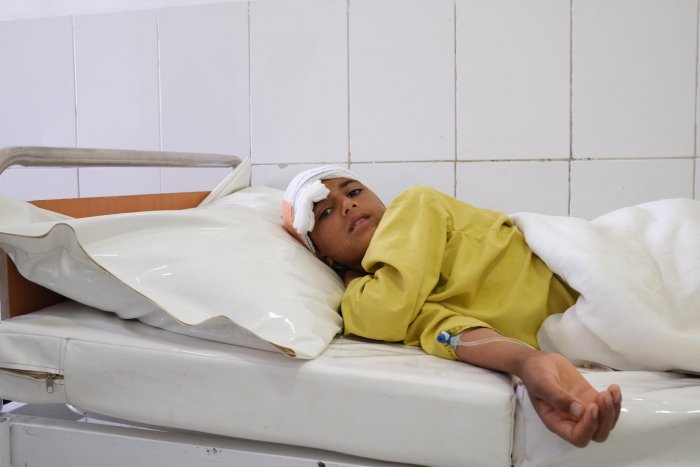
Fighting in Afghanistan has been intense since May, but in recent weeks the clashes between the Afghan army and the Islamic Emirates of Afghanistan (also known as the Taliban) have increased in intensity and have moved into more urban areas such as Lashkar Gah city in Helmand Province.
“There has been relentless gunfire, air strikes and mortars in densely populated areas. Houses are being bombed, and many people are suffering severe injuries,” says Sarah Leahy, coordinator of the MSF Helmand project.
“Fighting within the city makes it harder for us to respond; our staff are part of the community and they, like many people, are afraid to leave their homes. It’s just far too dangerous and life is at a standstill,” says Leahy.
“Some of our colleagues are staying overnight in the hospital as it’s safer, but also so they can keep on treating patients. The situation has been dire for months but now it is even worse.”
Despite the challenges, the MSF-supported Boost hospital remains operational and has seen a marked increase in trauma needs over the past week.
“In just one day we performed 10 surgeries on people injured by violence, which is unheard of for us as we are not Lashkar Gah’s main provider of trauma care,” says Leahy. “Before last week we were operating on average on two war-wounded people per day.”
The main trauma centre in the city is run by another organisation, and is also under immense pressure; the people they cannot admit are sent to MSF for care.
Between 29 and 31 July alone, MSF treated 70 war-wounded patients. In total from 3 May until 31 July, we have treated 482 war-wounded people, nearly all (92 per cent) for injuries caused by shells and bullets, and around a quarter (26 per cent) aged under 18. The patients seen by MSF are just a fraction of the total number injured by the violence.
The fighting exacerbates health needs beyond trauma care. Given the lack of well-functioning and affordable medical facilities in Helmand, people rely on the 300-bed Boost hospital, the only referral hospital in the province, for essential neonatal, paediatric, inpatient, intensive care, maternity, malnutrition, and surgical services among others.
Source: MSF







